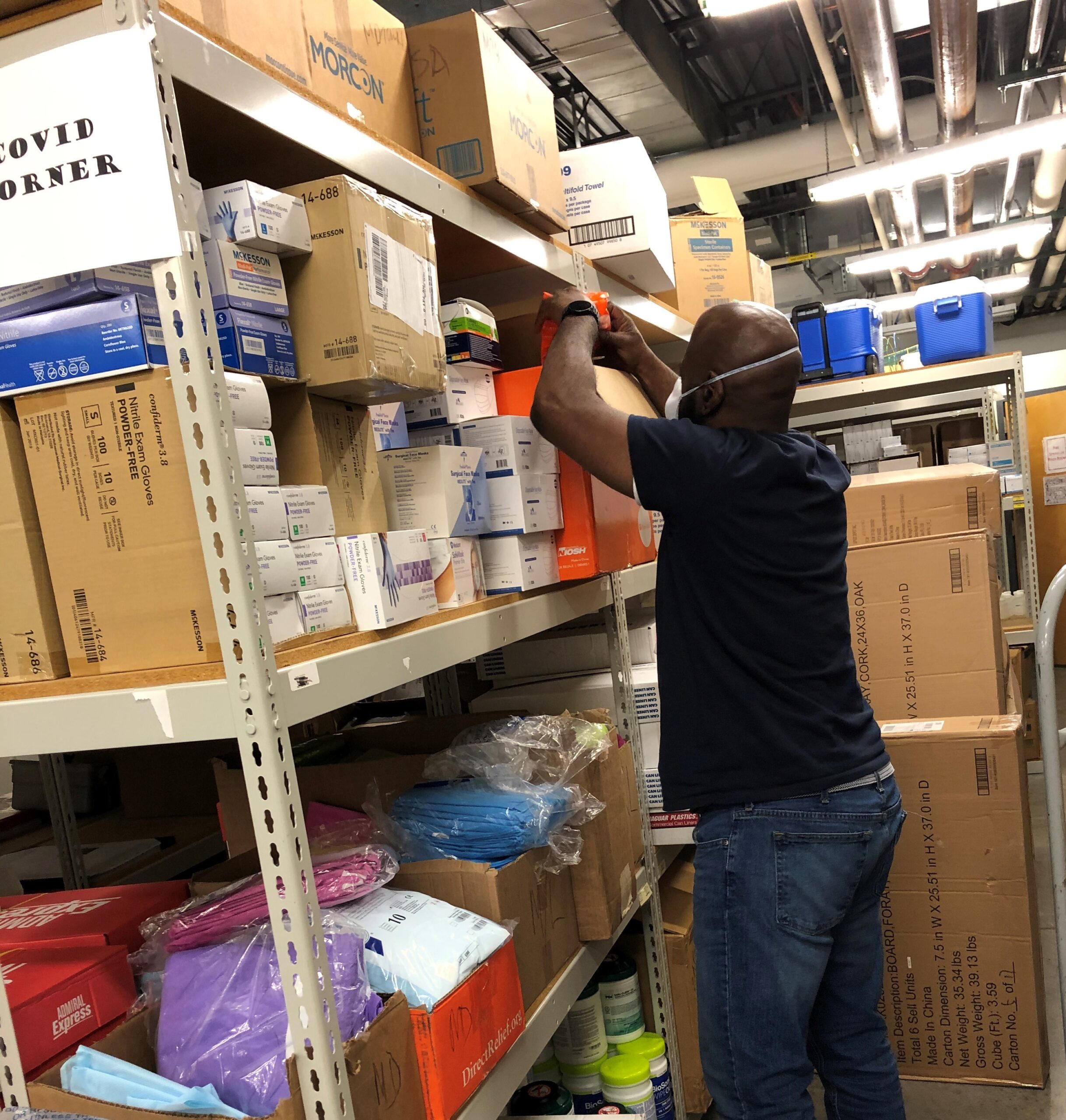
By Kimberly Marsh-McLeod
Former Tulsa Mayor Susan Savage, now executive director of Morton Health Services, began a discussion about the changes in operations responding to COVID-19 with a much needed laughable moment.
This COVID-19 pandemic has people on edge, and those who are still working together – or living together – are looking for ways to make this time lighthearted for the sake of their mental health.
Savage came into the office on this Friday morning in April to see a digitally altered photo of her on a big screen as part of a staff report. It was an image of her face from more than a decade ago, while she was Tulsa’s Mayor, on the body of a Star Trek captain on the bridge.
“It was really funny because I looked so stern,” she said, explaining that her staff, in finding a stern expression on her face, had made a rare find, as she usually is laughing or smiling in pictures.
Savage began addressing response issues in March, addressing emergency response and worker safety and protocols, then turned their attention to sustainable operations and logistics.
“We had to address the foundational while adapting to a highly contagious and fairly lethal virus that we are still learning about. Once you are done with the emergency response preparation and activation, your brain goes into a systematic approach.
They assessed frontline workers from patient representatives to medical providers, to determine who may be a higher risk and sent them home to either serve through telemedicine or work remotely.
“If they were able to perform their jobs remotely we could eliminate that potential for the introduction of viral infection into the environment,” Savage said. “Once through with our analysis, it required getting laptops ready and assignments, how to stay in touch with one another, troubleshooting and requiring people to be very innovative and flexible in how they perform their jobs.”
The administration team is at seven members, including Savage, working regular daily hours at the main clinic. Two facilities have been temporarily closed due to the pandemic, and 40 percent of the workforce was sent home to work remotely or see patients via telemedicine online.
“There is a lot to think about everyday. There are things that keep you up at night. All of us have been experiencing that and we worry about our families. We haven’t seen them in well over a month. Specifically referring to her own grandchildren, Savage continued, “ I mean I see them in the driveway and get to wave at them, but I have not held them or hugged them or kissed them. We all miss the normal routines of life; going on a walk and not having to worry about being six feet apart.
“It is the small things that make a difference and those are things that I believe will resume sooner rather than later if we are smart now.” Savage said, reiterating the need for Tulsa County residents to continue to be vigilant, although the Gov. Stitt has ordered that Oklahoma businesses may begin to re-open.
As a healthcare facility, Morton has remained open for patients while also shifting how they deliver services. Patient appointments that could be deferred have been rescheduled into May and June during this period of time. Keeping patients and staff safe with high levels of disinfection and infection control continue, while ensuring staff and patients practice all safety protocols.
Morton’s behavioral health department is already experiencing increases in requests for appointments as citizens deal with the social, emotional, and economic impacts of this pandemic.
“We know the demand for dental services and optometry exist so services will reopen with guidance from national standards and in consultation with providers,” Savage said. “Morton’s slogan is “In the Neighborhood since 1921” and that will continue moving forward.”
Social distancing has disrupted long-term programs, including the childrens’ behavioral health summer camp held in partnership with the Tulsa Housing Authority. Since planning the programs and registration of children occurs in March, there is no time to ramp up for the camps.
Morton serves about 18,000 unique patients a year, of which about 40 to 50 percent are uninsured or underinsured, and defer healthcare. Morton, which offers optometry, dental work and behavioral health services, immediately fell in sync with industry protocols. Dental offices across the country had to close immediately because the aerosol spray from the mouth is one of the most certain ways of contracting the virus. Optometry appointments were deferred.
To complicate matters further, COVID-19 hit at the end of the flu season and the beginning of Spring. Every case with a symptom of COVID had to be screened.
“We had to be very intentional about how we screen. We implemented protocols immediately with the call center to screen people through a series of questions.”
Savage said patients presenting symptoms of COVID are sent to a negative pressure room which reverses the airflow so it will not escape the clinic.
“Everyone of us behaves as if we have the virus or are potential carriers of the virus, and that will inform our own behavior. So much of the guidance from the public health experts is that individual behavior makes a huge difference; social distancing, limiting your exposure to other people and situations.”
Transportation services have continued in order to ensure patients are able to receive treatment for chronic illnesses and fill prescriptions. Because they had capacity, Savage said the Morton drivers also now take a volunteer to deliver Meals on Wheels in order to ensure clients receive consistent service. Morton also is making accommodations to shelter homeless patients and provide medical needs for people experiencing homelessness. A pediatrician at the east clinic performs well-child exams and immunizations in the morning and treats ill children in afternoon.
But the main question for frontline workers is “how are you holding up?”
“Since they moved into action about seven weeks ago, we are trying to ensure they do not burn out or get sick. We rely very heavily on them,” Savage said.
But Savage said the frontline workers are truly inspirational.
“They have set a tone with the clinical medical staff for support teams and collectively focus on individual safety while serving patients,” she said. “There are moments of anxiety and compassion fatigue. People walk to take breaks and clear their heads. We are trying hard to keep everyone safe as a top priority and I point to the superb clinical leadership and their unwavering dedication.”









